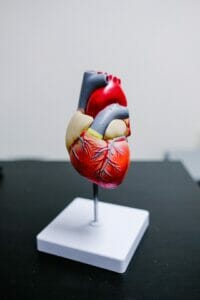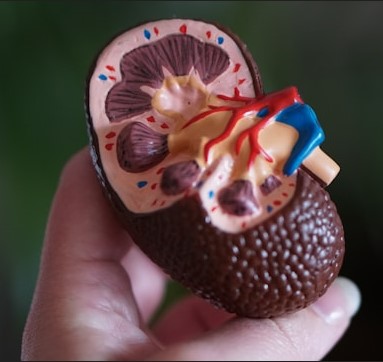 Does Depression Affect Our Heart?
Does Depression Affect Our Heart?
This is an important topic as we see the increase in mental health issues as a result of the pandemic.
Depression has been proven to be a such a risk factor in cardiac disease that the American Heart Association (AHA) has recommended that all cardiac patients be screened for depression
“When you experience depression, anxiety or stress your heart rate and blood pressure rise, there’s reduced blood flow to the heart and your body produces higher levels of cortisol, a stress hormone. Over time, these effects can lead to heart disease.” AHA
AHA recommends using simple screening questions and an easy-to-administer survey called the Patient Health Questionnaire (PHQ-2).(1)
PHQ-2 involves asking two screening questions for depression.
- Over the past 2 weeks, have you felt down, depressed, or hopeless?
- Over the past 2 weeks, have you felt little interest or pleasure in doing things?
If you answer yes to both of these questions, there is a high likelihood of clinical depression, and your health care provider can provide recommendations to help you get the treatment you need. Your health care provider can also administer the Patient Health Questionnaire 9 (PHQ-9), a nine-item question list that can better define your depression and guide treatment.
Does Depression Affect Our Heart?
A Cause and a Result?
Depression can be both a cause of and a result of cardiovascular (heart) disease. Even mild depression is a common and significant risk factor for developing heart disease and can also raise the risk of future cardiovascular complications.
Here are a few ways heart disease and depression are linked
The Inflammation Link
For decades, researchers have been investigating a potential association between inflammation and depression(2). The studies to date confirm people with depression often have elevated blood markers for inflammation. One recent study of more than 43,000 women concluded that eating an ‘inflammatory diet’ correlated with an increased risk of developing depression.
Foods to Limit on an Anti-inflammatory Diet
- Alcohol
- Fast food and fried foods of all kinds
- ‘Processed’ foods like lunch meats and hot dogs
- Meats, especially red meats like beef and pork
- Refined grains, such as breads or tortillas made with white flour
- Snack foods like packaged chips and crackers
- Sugar, including table sugar, sodas, candy and anything else that contains added sugar
- Trans fats of all kinds, including margarine
Foods to Eat on an Anti-inflammatory Diet
 The Mediterranean Diet is naturally anti-inflammatory, and you can easily access information on how to adopt this heart-healthy eating pattern that may also benefit depression and heart heath.
The Mediterranean Diet is naturally anti-inflammatory, and you can easily access information on how to adopt this heart-healthy eating pattern that may also benefit depression and heart heath.
Similar Blood markers (3)
Patients with depression have been shown to have
- increased platelet reactivity
- decreased heart variability
- increased inflammation markers (such as C-reactive protein or CRP),
which are all risk factors for cardiovascular disease and can increase the risk of an adverse cardiac event such as a heart attack or blood clots.
Depression links to lifestyle factors that contribute to heart disease
- poor diet
- inactivity
- drug or alcohol abuse
- social isolation
 Common symptoms of depression and heart disease
Common symptoms of depression and heart disease
- low energy
- sleep problems
- irritability
- lack of physical activity
Assessing Depression
Early detection and treatment of depression in heart patients are crucial to improve a patient’s quality of life and possibly prevent a recurrent coronary event. Studies have shown for people with heart disease, depression can increase the risk of an adverse cardiac event such as a heart attack or blood clots.
YOU MIGHT ALSO LIKE
Heart Surgeon Speaks Out on What REALLY Causes Heart Disease
REFERENCES
- Litchman JH, et al. Depression and coronary heart disease: Recommendations for screening, referral and treatment. A science advisory from the American Heart Association Prevention Committee of the Council on Cardiovascular Nursing, Council on Clinical Cardiology, Council on Epidemiology and Prevention, and Interdisciplinary Council on Quality of Care and Outcomes Research: endorsed by the American Psychiatric Association. Circulation, Oct 21 2008. 118(17):1768-1775.
-
Giovanni Amodeo Maria Allegra Trusso and Andrea Fagiolini Depression and Inflammation: Disentangling a Clear Yet Complex and Multifaceted Link Neuropsychiatry (2017) Volume 7, Issue 4
-
Depression & Heart Disease article HERE





























